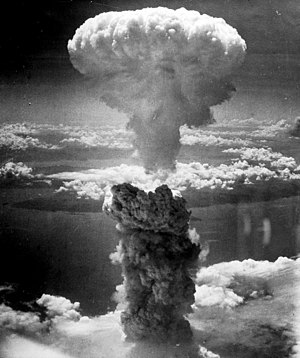Charles Krauthammer posted an article at the National Review on Friday about some of the information that has been leaked out about the upcoming nuclear treaty with Iran.
The article reminds us of the relationship between Iran and the International Atomic Energy Agency (IAEA):
Yet so thoroughly was Iran stonewalling International Atomic Energy Agency inspectors that just last Thursday the IAEA reported its concern “about the possible existence in Iran of undisclosed . . . development of a nuclear payload for a missile.”
Iran is not negotiating in good faith–Iran is stalling for enough time to complete their work on an atomic bomb–at that point the negotiations will be moot.
Joel C. Rosenberg posted an article on his blog yesterday entitled, “The biggest threat now is not Radical Islam. It is “Apocalyptic Islam.”” The article includes excerpts from his speech to the National Religious Broadcasters Convention.
Mr. Rosenberg states:
The most serious threat we face in the Middle East and North Africa is what I call “Apocalyptic Islam.”
This term — “Apocalyptic Islam” — is one that each of needs to become familiar with and begin to teach others. Why? Because for the first time in all of human history, we have not just one but two nation states whose rulers are driven not by political ideology — or even mere religious theology — but by apocalyptic, genocidal End Times eschatology.
The Islamic Republic of Iran today is ruled by an apocalyptic, genocidal death cult. (see also here, here and here)
So is the Islamic State, also known as ISIS or ISIL. (see here and here)
The former are Shia. The latter are Sunni. Both believe the End of days has come. Both believe their messiah – known as the “Mahdi” — is coming at any moment. Both are trying to hasten the coming of the Mahdi. Yet each has entirely different strategies to hasten his arrival or appearance on earth.
ISIS wants to build a caliphate. Iran wants to build The Bomb. ISIS is committing genocide now. Iran is preparing to commit genocide later.
Part of the doctrine of this form of Islam is that the coming of the Mahdi can be hastened by causing chaos around the world. Therefore there is no reluctance to cause harm to innocent people.
Mr. Rosenberg concludes:
These facts have real-world implications. Our President and many policy-makers are ignoring both the facts and their implications. But we must be clear: we face a threat from Radical Islam which seeks to attack us. We face an even greater threat from Apocalyptic Islam which seeks to annihilate us.
The article at the National Review looks at President Obama’s history in dealing with Iran:
Wasn’t Obama’s great international cause a nuclear-free world? Within months of his swearing-in, he went to Prague to so declare. He then led a 50-party Nuclear Security Summit, one of whose proclaimed achievements was having Canada give up some enriched uranium.
Having disarmed the Canadian threat, Obama turned to Iran. The deal now on offer to the ayatollah would confer legitimacy on the nuclearization of the most rogue of rogue regimes: radically anti-American, deeply jihadist, purveyor of terrorism from Argentina to Bulgaria, puppeteer of a Syrian regime that specializes in dropping barrel bombs on civilians. In fact, the Iranian regime just this week, at the apex of these nuclear talks, staged a spectacular attack on a replica U.S. carrier near the Strait of Hormuz.
Well, say the administration apologists, what’s your alternative? Do you want war?
It’s Obama’s usual, subtle false-choice maneuver: It’s either appeasement or war.
The article at National Review reminds us that Congress has the power to put in place economic sanctions on Iran. He also suggests that the United States make it clear that we will not stand in the way of any country willing to take the problem of Iran’s nuclear program into its own hands.
The article at the National Review concludes:
Consider where we began: six U.N. Security Council resolutions demanding an end to Iranian enrichment. Consider what we are now offering: an interim arrangement ending with a sunset clause that allows the mullahs a robust, industrial-strength, internationally sanctioned nuclear program.
Such a deal makes the Cuba normalization look good and the Ukrainian cease-fires positively brilliant. We are on the cusp of an epic capitulation. History will not be kind.
This is one of those times in American History where the survival of our nation depends on Congress having a backbone. I don’t find that encouraging.











